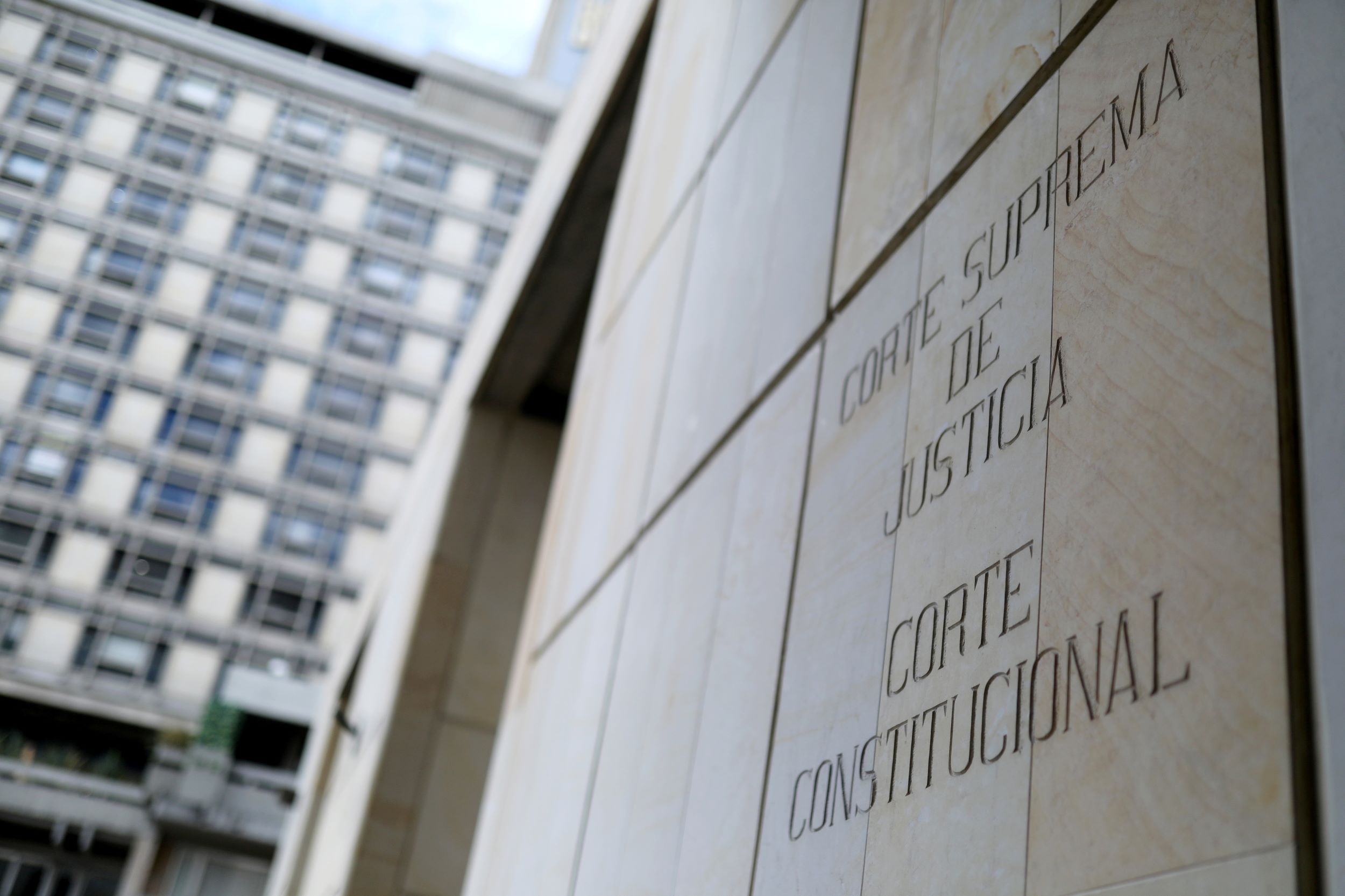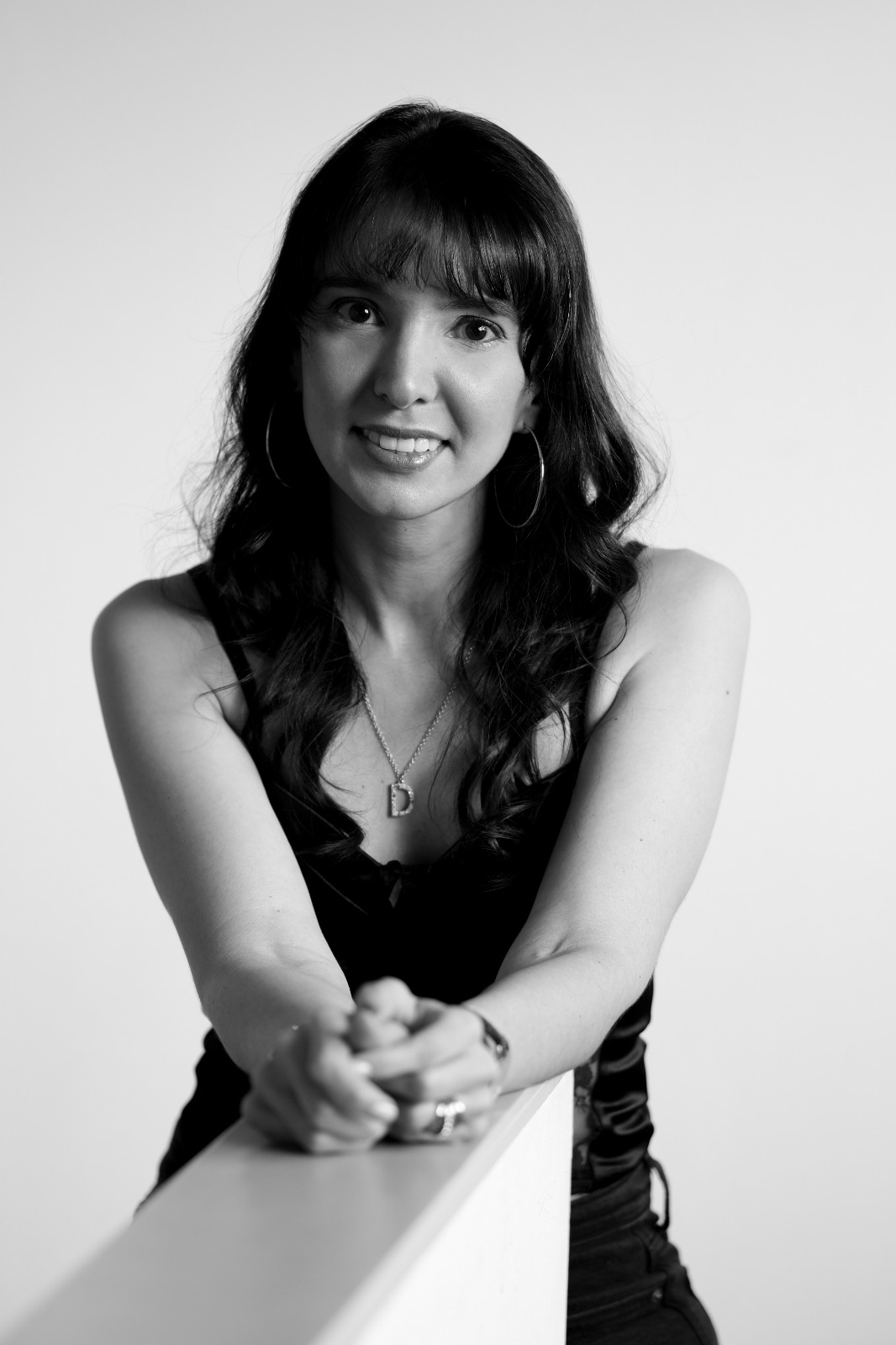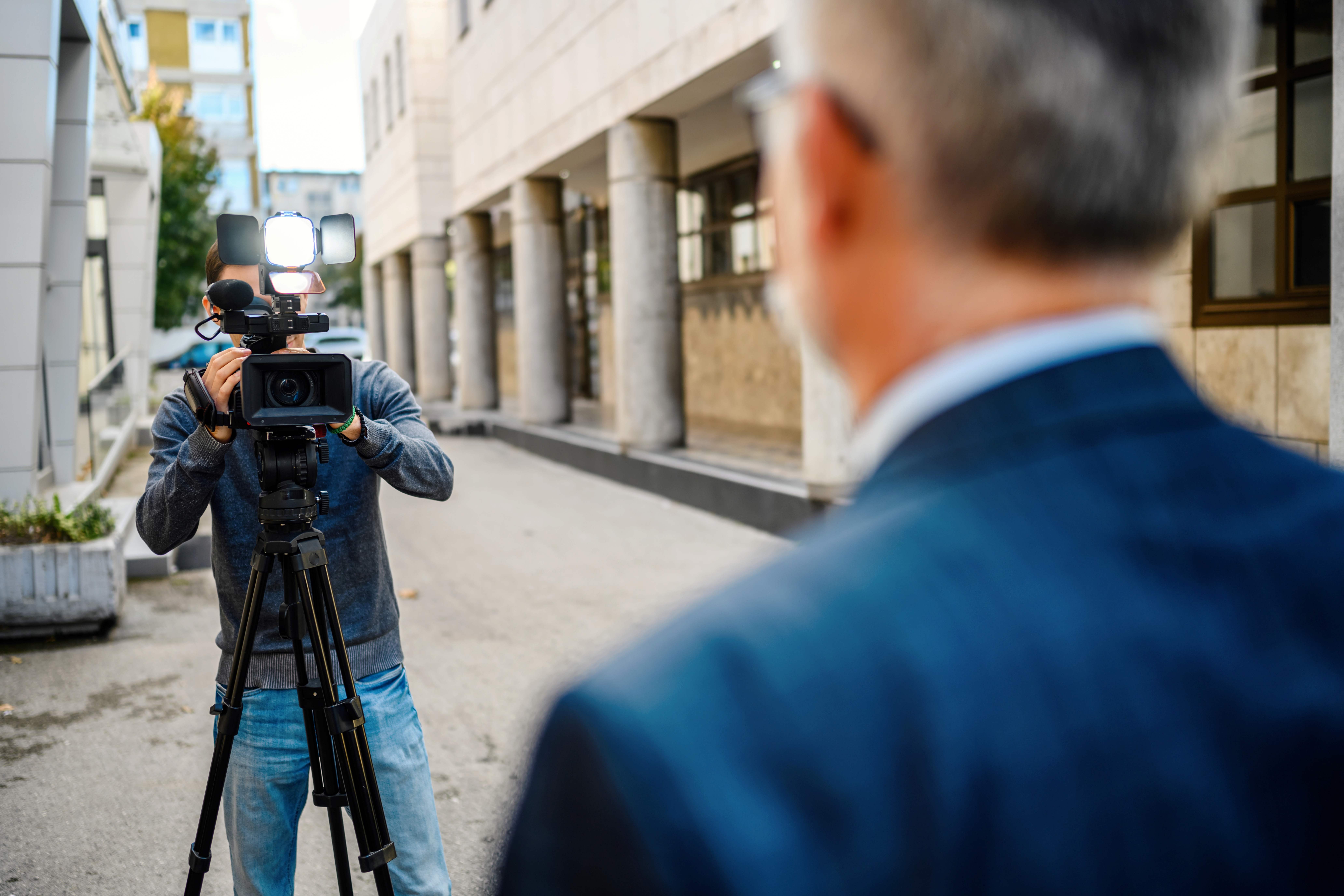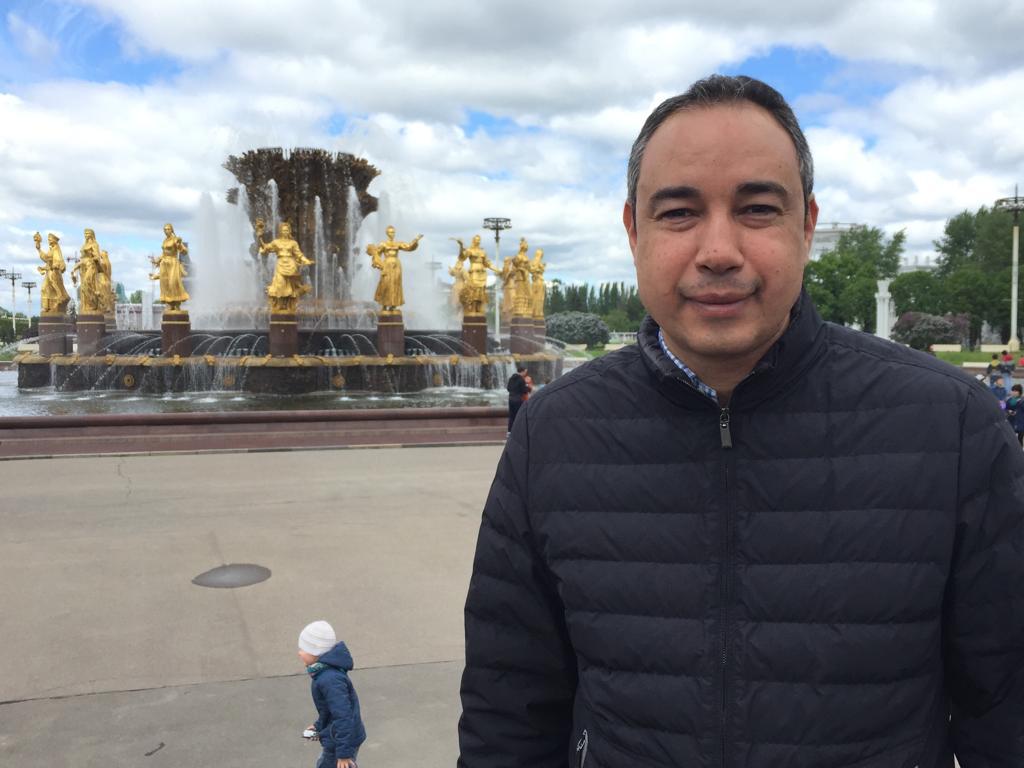As a journalist, reporting on the murder of my father meant answering questions about my own position as an objective observer
Every narrative starts from a point of view. There is a subject who observes - the journalist - who narrates what they saw and investigated. But what happens when the journalist is the victim of a heinous act, such as the murder of their father? Can they investigate and tell their own story and present it as journalism? Where are the boundaries of ethics established?
I was 10 years old when they killed my father. He was then a councilman in a municipality in Guajira, northern Colombia. He had publicly denounced the corruption of the mayor and, in 1997, as revenge, the mayor ordered his murder.
A river of blood flowed in that violent region. Guerrilla groups and paramilitaries supported by the state were terrorising the population at that time. As those who denounced ended up dead, people opted for silence; self-imposed silence as a self-defence mechanism. But the murder of my father grew like a deep wound in me and marked my destiny: I wanted to be a journalist and get to the truth.
I had only the name of the killer: Juan Francisco Gomez, alias Kiko. I wanted to know why he had ordered the murder. I knew he was the mayor and that, with all his power, he would prevent justice from being done. He commanded a criminal group that committed murders and massacres in the region. The motive was always the same: to annihilate his opponents. Prosecutors and judges dared not touch him; legal proceedings floundered. The file for the murder of my father was archived months later. As they feared reporting, the relatives of the victims entrusted themselves to divine justice instead.
I grew up in an environment of violence and fear. I dreamed of knowing the whole truth and one day telling the story. Did my father deserve his fate? Why was he killed? Why did no one do anything to defend him? As a teenager, I wrote poems expressing my suffering: that's where my urge to write began. I decided that studying journalism would give me the tools to investigate deeply, no matter how much it hurt.
The first few years were frustrating: my father’s killer had by then gained even more power and was more dangerous; he had already killed a hundred people and was the governor of La Guajira, a region bordering Venezuela which was plagued by violence, corruption and neglect. Indigenous children still die of hunger in that region.
Nearly 20 years after my father's murder, a prosecutor delegated to the Supreme Court of Justice in Bogotá was assigned to investigate the case and, for the first time, the killer was brought to trial. I was a practising journalist and, although plagued by persistent fear, I not only provided my own testimony about what I knew but also embarked on an investigation that led me to locate files, interview hitmen, consult with forensic doctors and, ultimately, delve into myself to mourn the impunity and unease that had forced me to put it off.
As journalists, we remain conditioned by our own prejudices - we all have them. But, at the same time, we have a duty to investigate against those same prejudices
During the trial, I wrote a couple of first-person chronicles. I was plagued with ethical doubts about whether I should do it and whether being a victim would render my account illegitimate. After two years of trial and one more year to render the verdict, the killer was sentenced to 40 years in prison. Then I embarked on writing a book in which I told not only my story but also, in a broader context, the story of other victims of the same killer.
The first ethical commitment that a journalist has is to themselves. Objectivity and impartiality in journalism are increasingly utopian ideals. Reporters are people who are always standing in one place, who have one perspective among many possible ones. Therefore, from the very start, there can only ever be partial objectivity.
So, while many journalists or photographers may attend the same event - a natural disaster, for example - they will always come away with different versions of the same story.
Choice of language is subjective. The focus, the perspective, and the choice of questions for interviewees are all decisions which will mark journalistic work. There is no standard methodology or limited checklist that applies generally to all reports.
So, we cannot be entirely objective if, from the very moment we propose an investigation, we focus on certain aspects of the subject of that investigation. The journalist, with full freedom, decides on where to broadcast the opening shot, how to tell general aspects of the tragedy, and how to end the story.
Perhaps the journalist will never be completely objective when investigating and narrating, but they do have an unavoidable ethical commitment: to be transparent and honest with their audience.
As journalists, we remain conditioned by our own prejudices - we all have them. But, at the same time, we have a duty to investigate against those same prejudices. We may identify with certain ideas, but those ideas should not be immovable. A journalist should always be open to discovering new interpretations, even those that might contradict their own. What is now called "militant journalism" is only a degradation of journalism: one should always show ideas in a general plane, alongside other ideas.
It's a cliché to say that there is no absolute truth about the facts. Journalistic truth may differ from procedural truth, for example. If a fact is not proven before the judges, it can still be evaluated through journalism, showing evidence, testimonies and documents that support it.
And, as journalists, we must doubt everything, even the truth proven before judicial instances. That's what journalism is about: more than certainties and doubts. If there is something we don't know or there are information gaps, we must be honest with the reader. Declaring, from the first line, the position from which I speak, is honesty: warning the reader that what I will narrate next has shaken my life as a journalist and I have decided to go after the trail of the killer to unmask him.
Ethics are always the same, no matter who practises them. Being a victim and carrying pain does not give anyone the right to make baseless accusations. Being a victim and a journalist means investigating against one's own limitations, expanding the scope and seeing beyond what cannot be seen, even though anger and pain may debase one's judgement.
A journalist has an ethical duty to show the different versions and facets of a “fact”. When reporting on the trial, I not only presented the testimonies that incriminated the killer, but also those that favoured him. Showing these contrasts is essential for the reader to draw their own conclusions. Being a victim did not give me a licence to invent or exaggerate for the sake of the story.
Being a journalist has certain advantages over judicial officials and judges. There are witnesses who would speak anonymously to a journalist, but would not do so in a court of law
Being ethical also means showing the grey areas of the story and of the victims themselves - not just the perpetrators. In the narratives, it is common to fall into the mistake of portraying victims as pure, flawless, without blemish - perhaps in an attempt to show the reader that they did not deserve their fate.
But the journalist's obligation is also to show the cracks; in fact, showing them does not diminish their status as victims, but it makes their story more human - more authentic. This is what I did and what I recommend: showing where the story, the victims and the perpetrators falter is an ethical pact with the reader. As García Márquez said: "In journalism, ethics are inseparable from technique, like the buzz to the fly."
Being a journalist has certain advantages over judicial officials and judges. There are witnesses who would speak anonymously to a journalist, but would not do so in a court of law. This happened to me during the investigation process. The killer was found guilty, but there were key testimonies that prosecutors had not obtained and that I, as a journalist, was able to obtain and use in my own investigation. There may be details that are not important in the judicial process, but which, examined closely, are a goldmine for a journalist.
Describing the climate or narrating a scene in which the journalist was not present is subjective, but it is less so if they visited the place, had access to important details and spoke with the protagonists. Even if the story of my father's murder had been written in the third person, or if another journalist had written it, there is always a first person who searched, sifted through records and files and conducted interviews. Showing the reader the flaws in the investigation itself is ethical.
One of the most complicated moments during my investigation came when I decided to seek out one of the hitmen who, during the trial, had changed his initial version to favour the killer. I prepared myself psychologically to stand before him without losing my composure. I interviewed him for hours in prison. I have also spoken with other hitmen about atrocious events, and they have affected me just as much. It is a false dilemma to want to separate the journalist from their emotions.
I do not have a recipe for not feeling fear, anguish or pain when investigating one's own history. I also faced real danger. My investigation has drawn threats on my life - today I am still accompanied by bodyguards assigned by the State. But more than ever, I know that ethics run through journalism, even if one is a victim, even if the investigation involves us. Journalism and ethics must be inseparable.








































